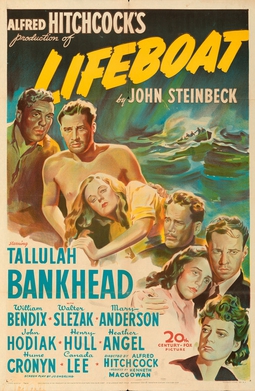 |
| Barber/undertaker Mort Borrow (Charles Halton) looks for payment for his services in burying a man Roy Bean (Walter Brennan) has hanged. |
 |
| Roy Bean faces a group of farmers who want to lynch him for his support of the cattlemen. |
 |
| Cole Harden (Gary Cooper) intercedes with the farmers who want to hang Bean. |
 |
| Bean buys up all the tickets for Lily Langtry's appearance, but is forced to deal with Harden instead. |
 |
| Having managed to escape being hanged by Bean, Harden seeks safety among the farmers, including Wade Harper (Forrest Tucker) and Jane Ellen Mathews (Doris Davenport) and her father (Fred Stone). |
 |
| Wearing his Confederate Army uniform, Bean awaits Lily Langtry's performance, only to be confronted by Harden. |
 |
| The mortally wounded Bean meets his dream woman, Lily Langtry (Lilian Bond). |
 |
| After a drinking bout, Harden wakes up in bed with the man who wanted to hang him. |
 |
| Jane Ellen interrupts Bean's trial of Harden to protest against his brand of frontier justice. |
 |
| Having persuaded Bean that he has a lock of Lily Langry's hair, Harden finds his hanging postponed. |
 |
| Cattlemen burn out the homesteaders' settlement and kill Jane Ellen's father, but she vows to Harden that she'll stay. |
 |
| Harden gives the supposed lock of Lily Langtry's hair to Bean. |
 |
| Chill Wills (center) plays Southeast, one of the men who have brought Harden to Bean as a supposed horse thief. |
 |
| Harden persuades Jane Ellen to let him cut a lock of her hair, which he intends to use to trick Bean. |
 |
| Having settled down together, Jane Ellen and Harden watch more homesteaders arrive. |
Cast: Gary Cooper, Walter Brennan, Doris Davenport, Fred Stone, Forrest Tucker, Paul Hurst, Chill Wills, Lilian Bond, Dana Andrews, Charles Halton, Trevor Bardett, Tom Tyler, Lucien Littlefield.
Screenplay: Jo Swerling, Niven Busch,
based on a story by Stuart N. Lake.
Cinematography: Gregg Toland.
Art direction: James Basevi.
Film editing: Daniel Mandell.
Music: Dimitri Tiomkin.
The Westerner is something of a generic title, even for a genre film. I suppose it refers to Gary Cooper's Cole Harden, who is westering toward California when he's brought up short in Texas by some men who think he's a horse thief. (A horse thief sold him the horse.) Tried and sentenced under Judge Roy Bean's "law West of the Pecos," Harden manages to play on Bean's infatuation with Lily Langtry to con his way out of the predicament, only to be forestalled again by a pretty homesteader, Jane Ellen Mathews, played by Doris Davenport, whose career peaked with this film. She's quite good, but for some reason she failed to impress its producer, Sam Goldwyn, who held her contract. We are thick into Western movie tropes here: frontier justice, cowpokes vs. sodbusters, and so on. But what turns The Westerner into one of the classics of the genre is the good-humored attitude toward the material, displayed most of all in the performances of Cooper and Walter Brennan, whose Roy Bean won him the third and probably most deserved of his Oscars. But much credit also goes to that ultimate professional among directors, William Wyler, who doesn't condescend to the material but gives it a lovingly leisurely pace that allows his performers to make the most of it. And there's a screenplay that stays brightly on target from the moment Bean announces that "in this court, a horse thief always gets a fair trial before he's hung." Jo Swerling and Niven Busch got the credit (and the Oscar nomination) for the script, but some other formidable writers had a hand in it, including W.R. Burnett, Lillian Hellman, Oliver La Farge, and Dudley Nichols.
























